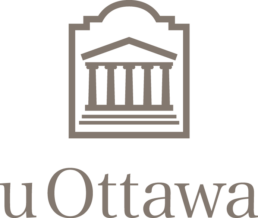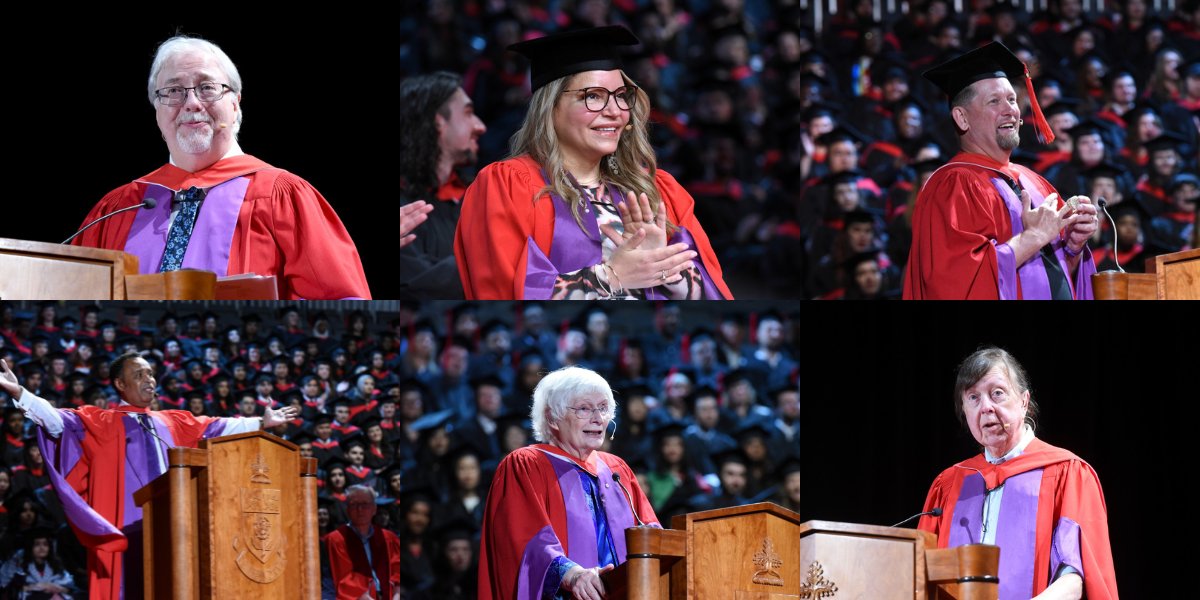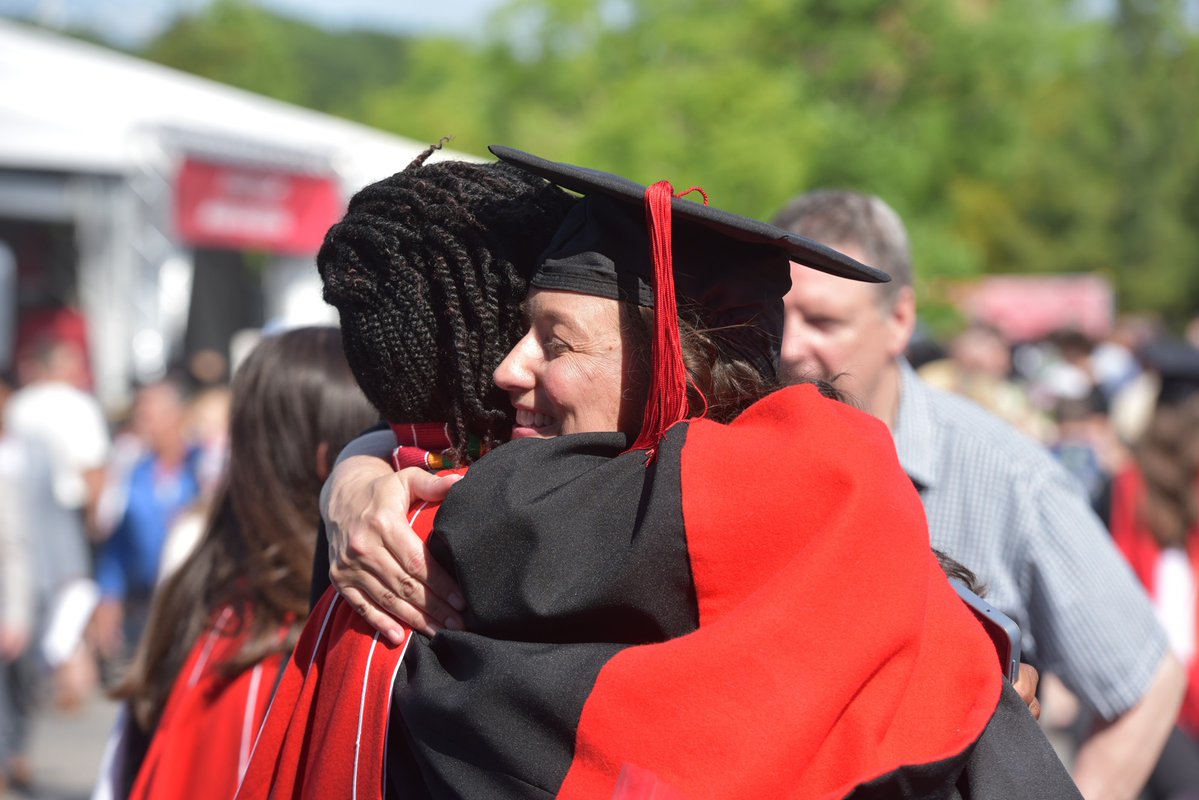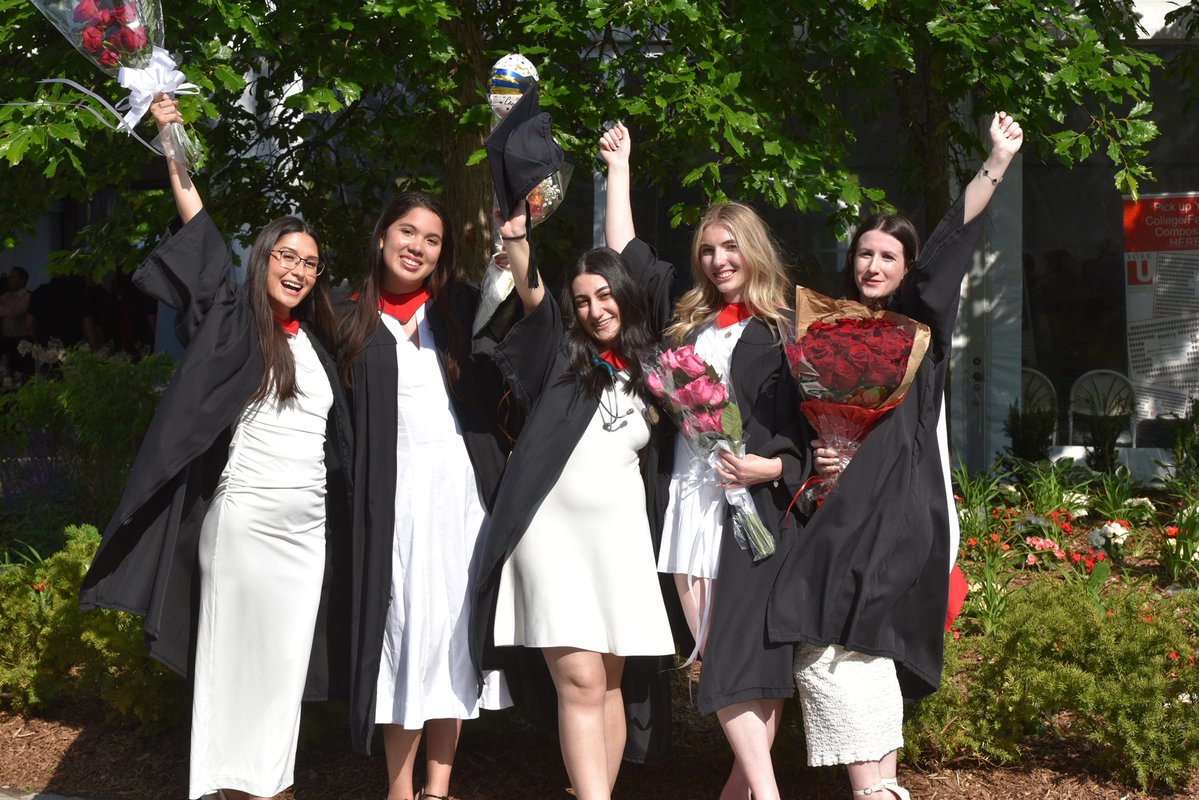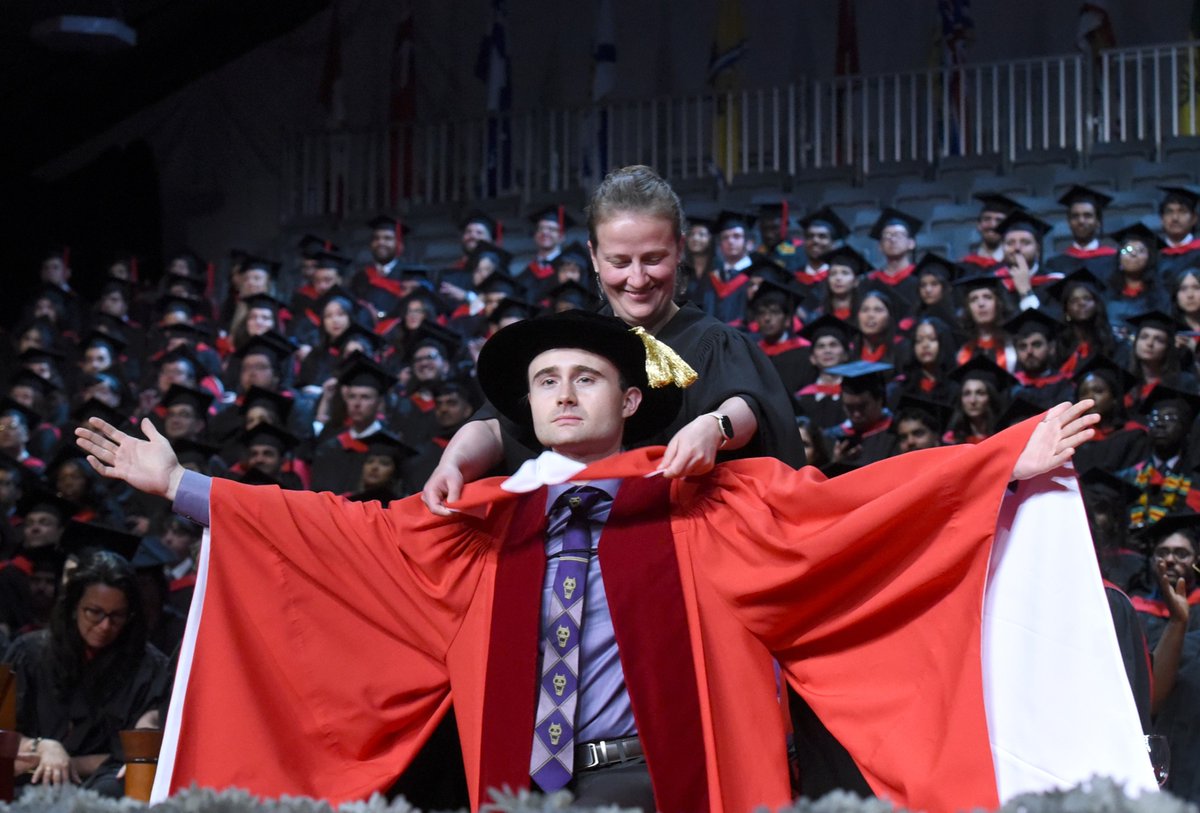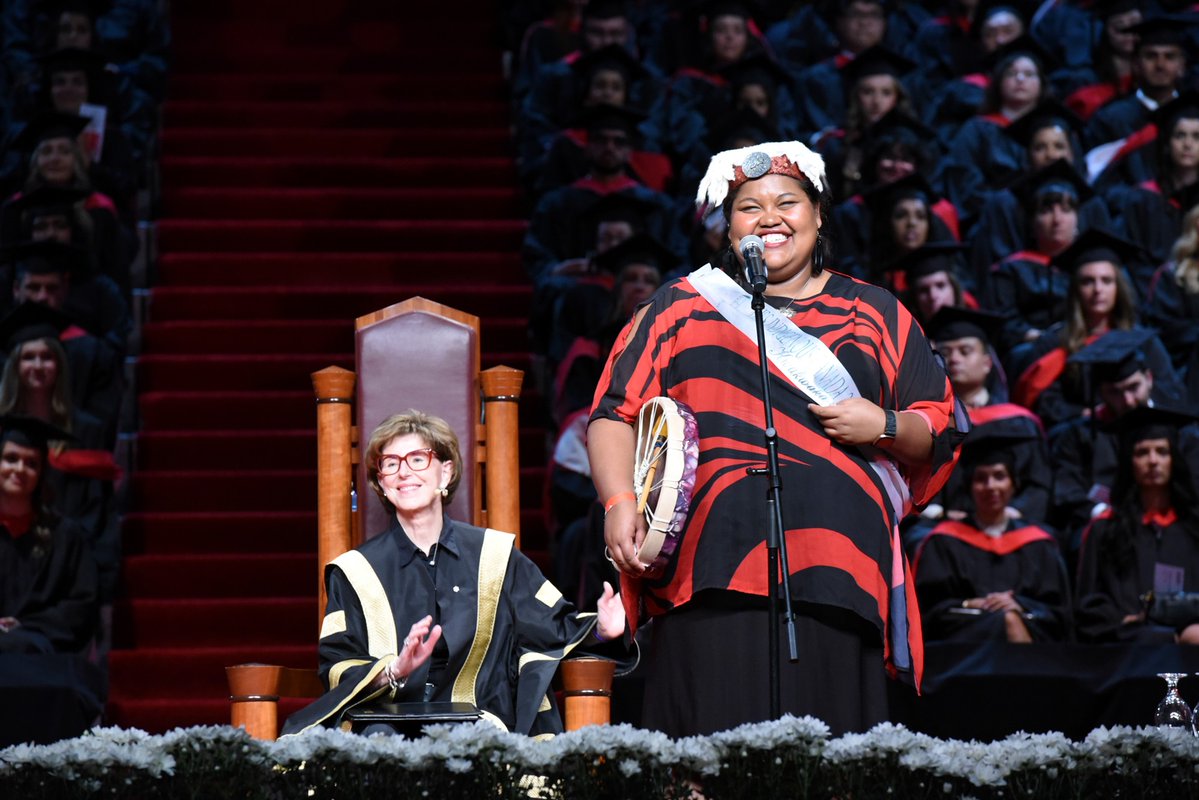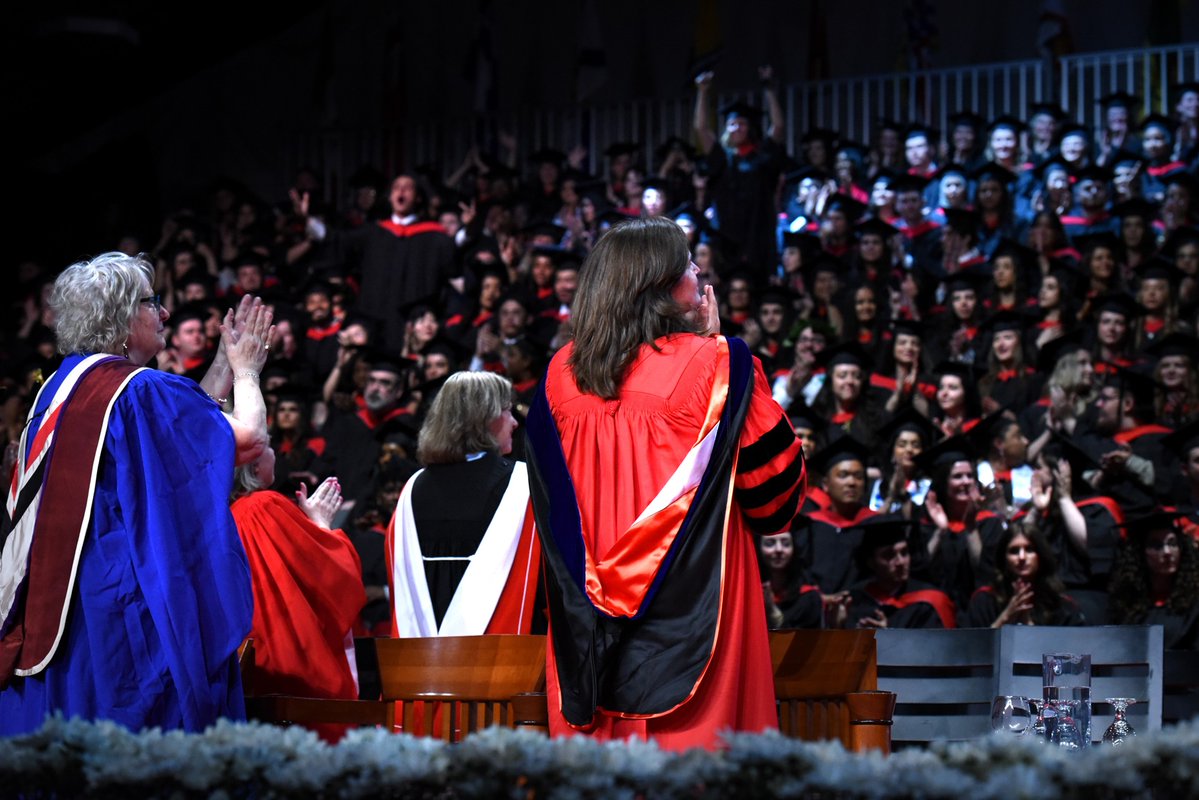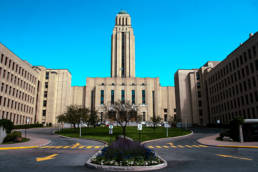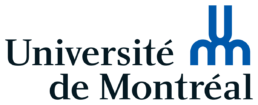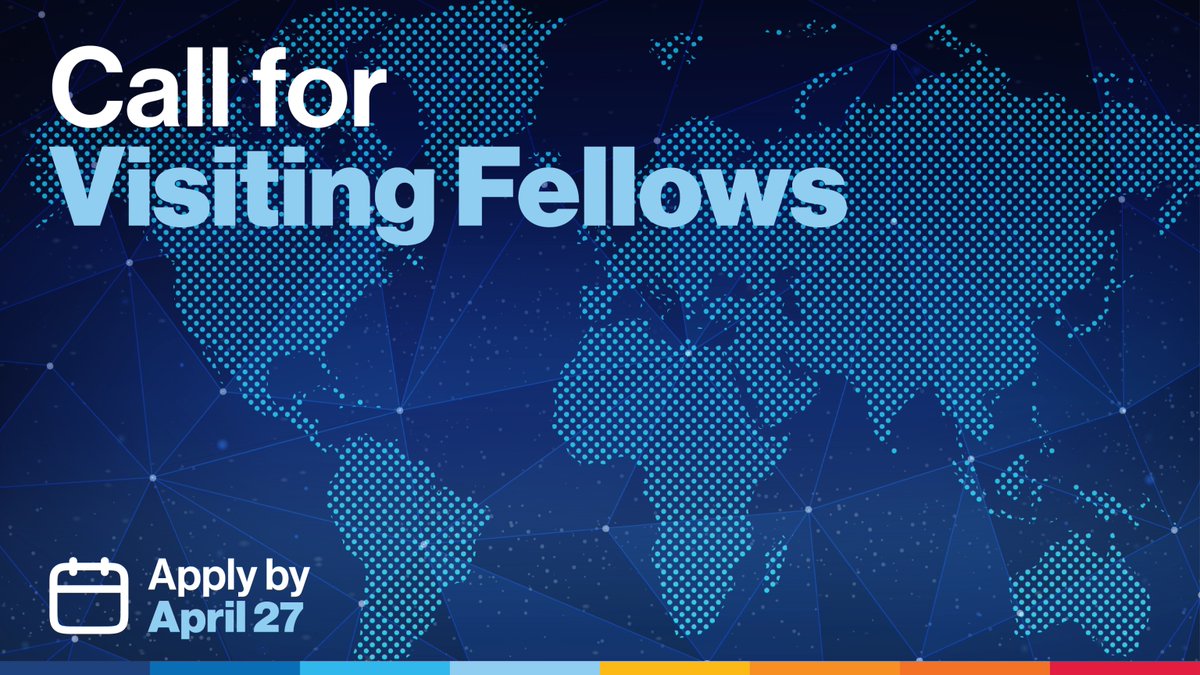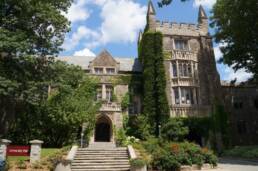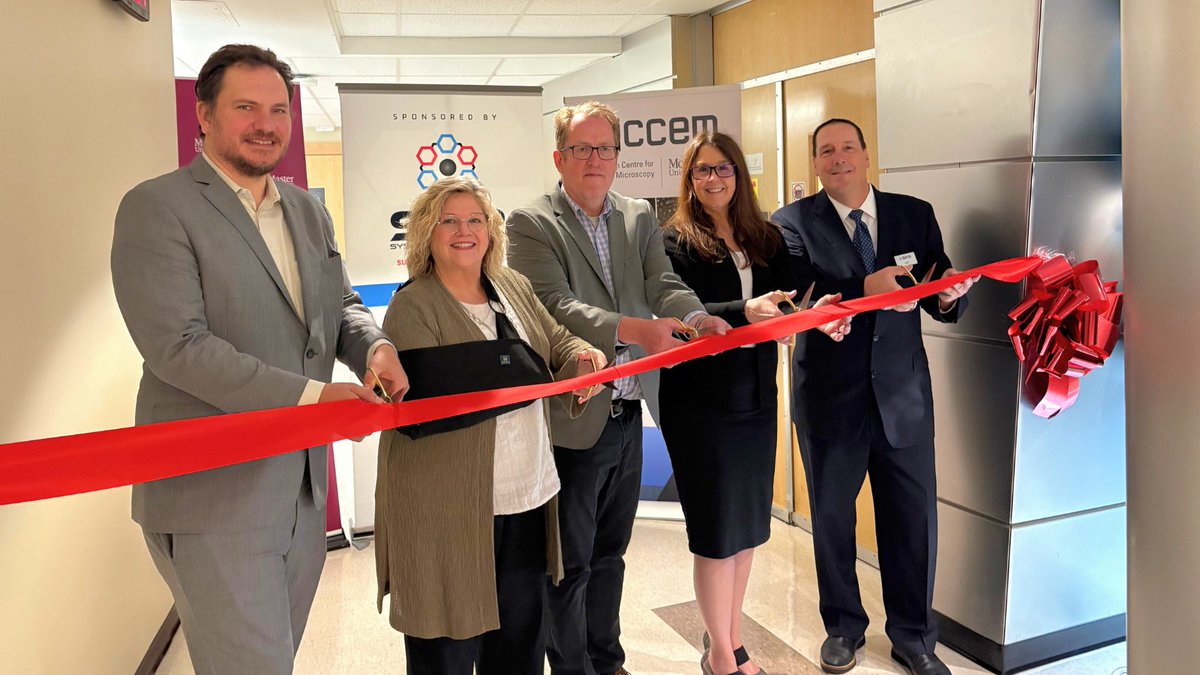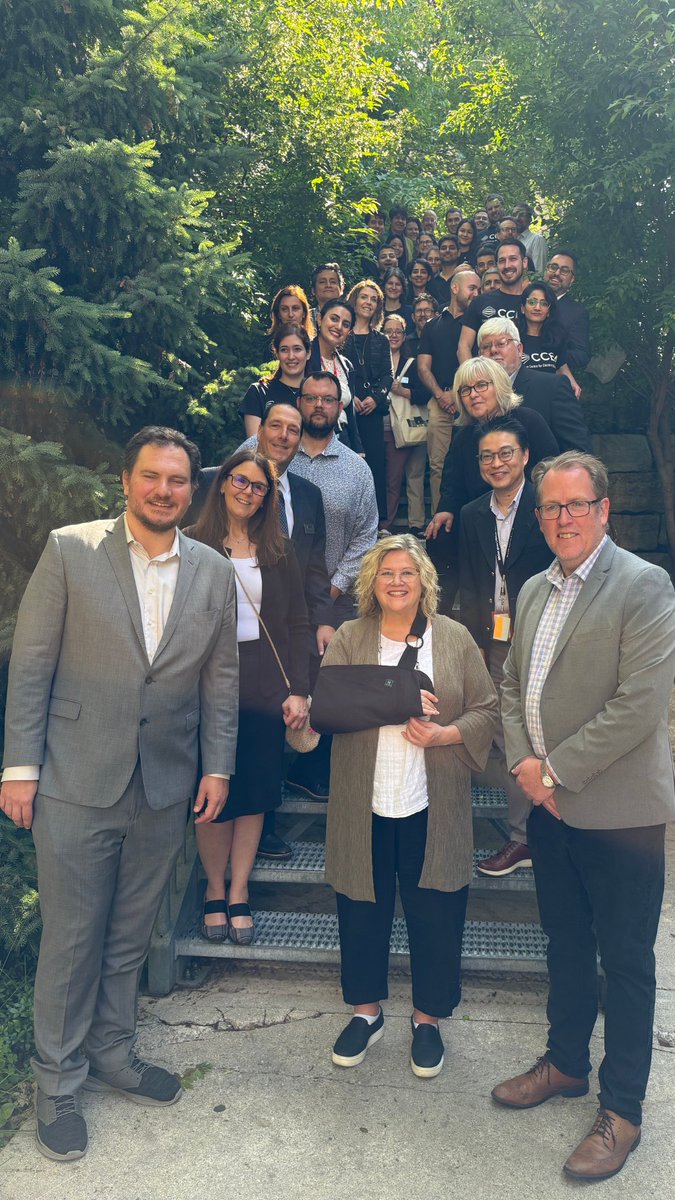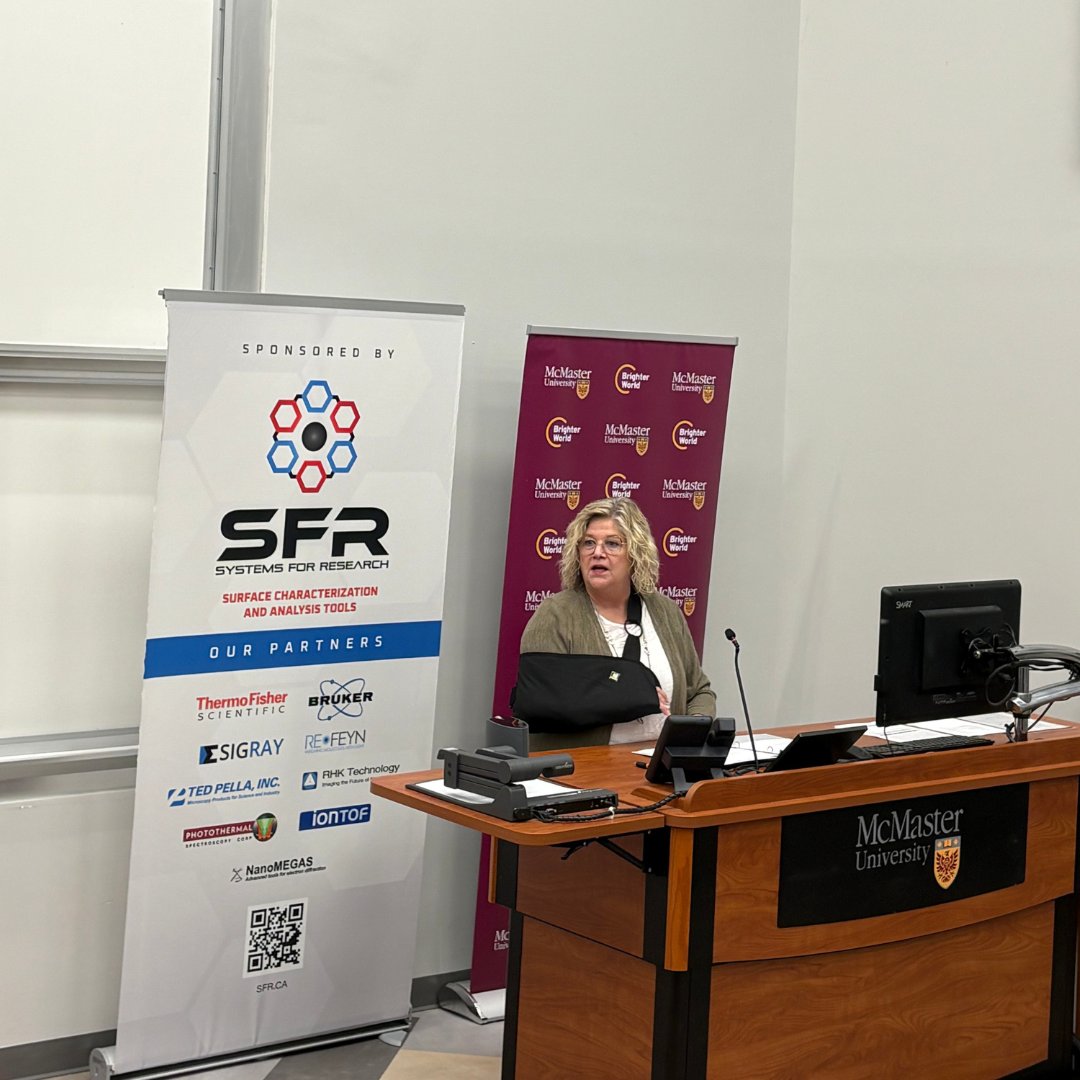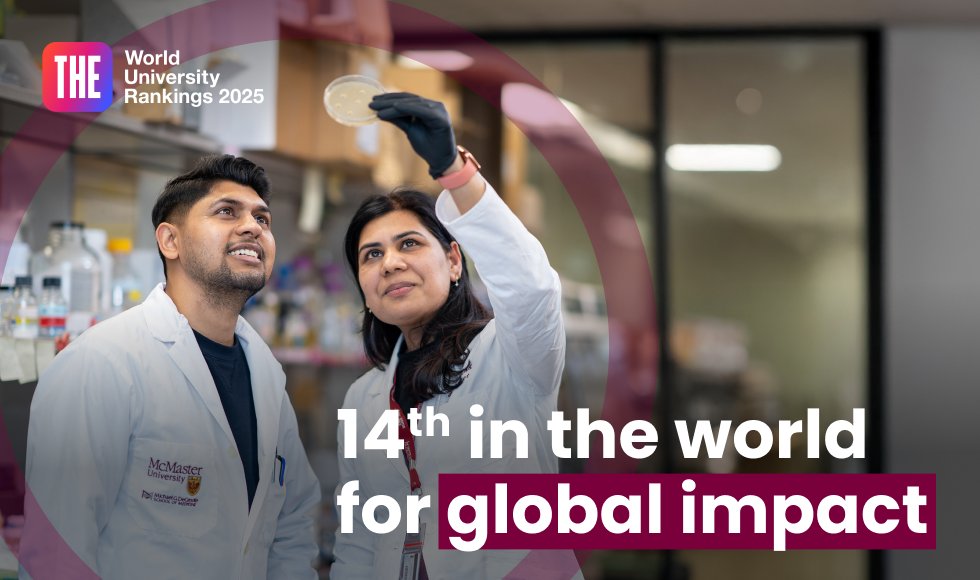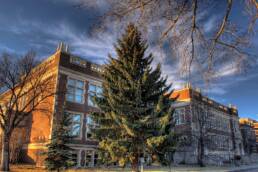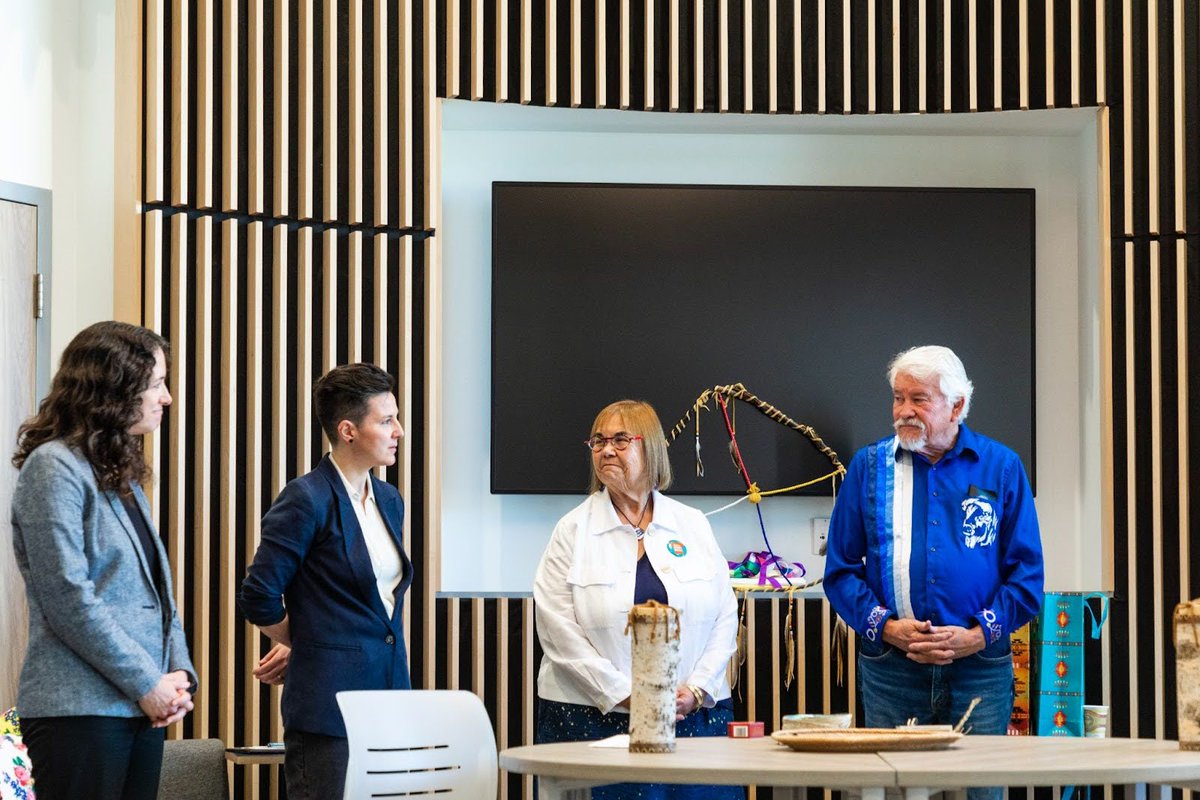University of Ottawa
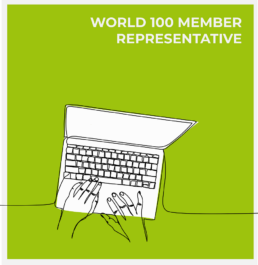
W100 Representative
Nicolas Gregoire-Racicot
Executive Director Marketing and Brand
The University of Ottawa is the largest bilingual (English-French) university in the world. Founded in 1848, the University of Ottawa is located in the heart of the capital of Canada. The university has a unique bilingual nature, which allows its students, faculty and staff to learn, work and live in English, French or both. UOttawa are committed to academic and research excellence and value cultural diversity, equity, and inclusion.
The University’s new strategic framework, Transformation 2030, boldly focuses our University community on shaping the leadership and research needed to address questions on a national and global scale.
The Latest from University of Ottawa
A new space has landed 🎉
The Arts District is now open; bringing together bold ideas, vibrant artwork, and student voices in the heart of campus.
Murals, media, installations… and more to come 🎨🧠
@uOttawaArts
✨ This is where creativity lives.
📍 Between Hamelin, Simard, Morisset & Pérez
#uOttawa #ArtsDistrict #CreativeCampus #FacultyOfArts
Un nouvel espace créatif voit le jour au cœur du campus 🎨
Le Quartier des arts, c’est un lieu vivant où les idées, les disciplines et les talents se rencontrent. Murales, sculptures, œuvres étudiantes… un parcours artistique à ciel ouvert pour toute la communauté.
@uOttawaArts
📍 Entre Hamelin, Simard, Morrisset et Pérez
✨ Ce n’est que le début.
#uOttawa #QuartierDesArts #FacultéDesArts
From dean to president — with one box and some big ideas in tow.
Marie-Eve Sylvestre steps into a new chapter at uOttawa. @recteurUOpres
De doyenne à rectrice, avec une boîte en mains et de grandes idées en tête.
Marie-Eve Sylvestre ouvre un nouveau chapitre à l’Université d’Ottawa. @recteurUOpres
🎉 MILESTONE ACHIEVED! 🎉
With immense gratitude to our donors, community partners and alumni, we’re proud to share that the uOttawa reIMAGINE campaign has surpassed its $500-million fundraising goal!
Your generosity transforms lives, fuels innovation and strengthens our community. Together, we’re shaping the future of education and research.
Thank you for believing in our mission!
#uOttawa #Gratitude #Community #Success
reIMAGINE report
What happens when a university dares to reIMAGINE its role in the world? At the University of Ottawa, it leads ...
www.uottawa.ca
🎉 OBJECTIF ATTEINT! 🎉
C’est avec immensément de gratitude pour les communautés donatrice et diplômée, ainsi que pour nos partenaires communautaires, que nous annonçons que la campagne rePENSER de l’Université d’Ottawa a dépassé son objectif de 500 millions de dollars!
Votre générosité transforme des vies, stimule l’innovation et renforce notre communauté. Ensemble, nous façonnons l’avenir de l’éducation et de la recherche.
Merci de croire en notre mission!
#uOttawa #Gratitude #Communité #Succès
Rapport de campagne rePENSER
Que se passe-t-il quand une université ose rePENSER son rôle dans la société? À l’Université d’Ottawa, l’e...
www.uottawa.ca
Starting your studies with curiosity can lead to unexpected paths.
Mathieu Samson Savage shares his unique journey, from psychology to sociology, all the way to defending his doctoral thesis. @uOttawaFSS
An inspiring story about self-discovery and finding purpose through learning.
Studying at uOttawa, changing society: Two socially engaged pathways
Giving a voice to youth experiencing homelessness through research
www.uottawa.ca
Travailler avec des personnes en situation d’itinérance, c’est un privilège que Mathieu Samson Savage prend à cœur. @uOttawaFSS
https://www.uottawa.ca/fr/toutes-nouvelles/etudier-luniversite-dottawa-transformer-societe-deux-parcours-engages
Chercheur, diplômé trois fois de l’Université d’Ottawa, il consacre sa carrière à faire entendre des voix trop souvent oubliées pour mieux comprendre, prévenir et intervenir.
Un témoignage touchant sur l’engagement et la recherche avec un vrai impact social.
La semaine dernière, les cérémonies de collation des grades de Toronto et de Windsor ont marqué la fin de nos cérémonies #uoGrad25. Félicitations à tous les diplômés de l'Université d'Ottawa! @uOttawaEdu
In 1866, the recently renamed College of Ottawa was elevated to university status by royal charter, and in 1889, it secured a pontifical charter. In 1965, the Oblates relinquished administration of the University and it became a provincially funded secular institution.
University of Ottawa has a 97% employment rate for graduates
The University's Social Sciences Building contains a six-storey living wall with 2,000 plants from 12 different species, and 80% of the building’s heating needs are met through heat redistribution
A university open to the world
uOttawa is a diverse community that brings together thousands of international students from more than 150 countries, offering opportunities to explore new cultures and ideas every day. Students choose UOttawa to enjoy a superior quality of education and generous scholarships, while living and studying in downtown Ottawa, near many international organizations, including dozens of NGOs, embassies and consulates.
With its diverse community of 45,000 students — including 16,000 Francophones and Francophiles — and 5,000 faculty and staff, The University of Ottawa is the largest bilingual (English-French) university in the world. In 2020, the University created the Office of the Vice-President International and Francophonie (OVPIF) in order to further reinforce its position in both the francophone and global communities.
Strategic pillars:
- More agile: Succeeding in a world where change is the only constant
- More connected: Becoming leaders in our global village
- More impactful: Working together to build a better world
- More sustainable: Securing our shared future
Driving research into the future
$60M
Per year in student scholarships and bursaries
$432M
Research revenue
The University of Ottawa, together with its affiliated hospital research institutes, are acclaimed innovators. Its researchers are world leaders in photonics, vascular and cardiovascular health, brain and mental health, Francophonie, public policy and social justice. With 23 research centres and institutes cutting across faculties and disciplines, uOttawa promotes dynamic research collaboration and leverages Ottawa’s government laboratories, industry and policymakers.
Ranking among the top 10 research-intensive universities in Canada and a member of the U7 International Alliance, uOttawa generates nearly $350 million in research revenue annually and is home to 94 Canada Research Chairs and 23 research centres and institutes. Our 29 core facilities, ranging from leading-edge photonics to multidisciplinary psychology labs, and a new building dedicated to STEM enable our researchers to push the boundaries of discovery.
Become a Member
The World 100 Reputation Network is a group of the best universities in the world, delivering research that enhances reputation and offering leaders the chance to develop their own careers on a global stage. Members benefit from events and study tours, training, monthly media monitoring, and unique reputation research to provide institutional advantage.
York University

W100 Representative
Vinitha Gengatharan
Assistant Vice-President, Global Engagement & Partnerships

York is a leading international teaching and research university and a driving force for positive change.
Empowered by a welcoming and diverse community with a uniquely global perspective, we are preparing our students for their long-term career and personal success. Together we are making things right for our communities, our planet, and our future.
The Latest from York University
Looking back on Convocation, Lassonde grads shared what this milestone means to them—and their words say it all. From first lectures to final projects, every challenge shaped this moment. We’re proud to celebrate the class of 2025!
#YorkUConvo @YorkUniversity @YorkUAlumni
Last week, we welcomed industry partners to discuss the future of construction and explore our Climate Data Driven Design facility, from 3D concrete printing to digital twinning. Thanks to all who are leading this important work.
#YorkU #YUChangeMakers #BuildingTheFuture
Today, I shared with the @YorkUniversity community that I will be completing my second term as President and Vice-Chancellor at the end of this calendar year.
Our second-year students sharpened their technical interview skills with guidance from Prof. Suprakash Datta, working through Leetcode-style problems in an interview-style setting. Great prep for co-op and beyond!
#FutureReady #Coop #ExperientialLearning #YorkU
Former Raptors head coach Nick Nurse received an honorary doctorate at convocation last week! Hear what he had to share with the class of 2025! #YorkUConvo
Kevin Zhang, a building scientist and professor at The Lassonde School of Engineering is at the forefront of designing sustainable buildings that reduce emissions and increase climate resilience. Read more: https://bit.ly/3G25qZr | #TheYorkUMag
New standard in LGBTQ2S+ research: LA&PS Professor Kinnon Ross MacKinnon and team at York U unveil a breakthrough protocol to ensure real voices—not bots—inform critical survey data.
🔗 Learn more:
#YUPride #PrideMonth

York team sets new standard for research on LGBTQ2S+ experiences - YFile
Led by Professor Kinnon Ross MacKinnon, the York U research team developed a novel protocol to filter out bots a...
bit.ly
Congratulations to the six influential changemakers who earned honorary degrees at Spring Convocation. Read more about each of their inspiring addresses to the class of 2025: https://bit.ly/4f98tec | #YorkUConvo
That's a wrap! Congratulations to the class of 2025 🎓🎉 | #YorkUConvo (1/2)
No. 1 York is the top ranked university in Canada for publications on COVID-19 & Mathematical Modeling, with researchers ranked Nos. 1, 3, 4 & 6 in the country (SciVal, 2021).
No. 1 York is the top ranked university in Canada for publications on COVID-19 & Mathematical Modeling, with researchers ranked Nos. 1, 3, 4 & 6 in the country (SciVal, 2021).
World ranking “high” York’s research output ranked “very high” (QS World University Rankings, 2021).
York University perform strongly in THE Impact rankings overall and for individual SDGs. Top 10 in the world for Sustainable Cities and Communities (SDG 11); Top 10 in the world for Peace, Justice and Strong Institutions (SDG 16); #1 in Canada Gender Equity (SDG 5)
Fostering global fluencies and
cross-cultural knowledges
York University has 300+ partnerships in 64 countries including partnerships with industry, governments, non-profit and private sector companies, and other educational institutions. These collaborative opportunities are co-created so that the missions of both York and the partnering organization are advanced in creating positive change for our students and in local and global communities.
Our commitment to collaboration allows us to address complex global challenges to create positive change in the local and global communities we serve. Solidifying existing international strategic academic alliances, and establishing new alliances is key to expanding outreach and engagement with York’s larger communities.
Experience firsthand York’s global impact and engagement. The University prides itself on championing diversity and inclusivity and fostering global fluencies and cross-cultural knowledges. York community lives these values on one of the largest and most diverse university campuses in Canada.
York’s student body includes about 18 per cent international students and also reflects the diversity of Toronto, one of the world’s most multicultural cities. The University draws scholars and exchange students from around the globe, and our students and faculty have opportunities for exchanges and collaborations at our more than 600 partner institutions worldwide.
York ranked No. 1 in Ontario for global collaborative research publications. Over 60% of York’s publications have an international co-author (SciVal, 2020).
Vision and Core Values
- We strive for Excellence in fulfilling all aspects of our mission
- We are Progressive, encouraging open-minded inquiry, innovative approaches, and forward-looking solutions
- We uphold Sustainability - environmental, social, and fiscal - as a vital compass for decisions and initiatives
- We are passionate about advancing Social Justice and Equity through critical insight, creative problem-solving, and socially responsible action
- We champion Diversity and Inclusivity, embracing differing perspectives, peoples, and ways of knowing, and fostering global fluencies and cross-cultural knowledges
Advancing knowledge and
creating positive change
$24.7m
in knowledge mobilization brokered project research funding
$1.8m+
in revenue generated by start-ups from Innovation York
York conducts purposeful research that advances knowledge and creates positive change. York is committed to excellence in research and scholarship in all its forms. Informed by a strong commitment to shared values, including promoting social justice, diversity, and the public good, we aspire through our research to better understand the human condition and the world around us and employ the knowledge we gain in the service of society. Intensive engagement in research is a core institutional value that permeates the fabric of the University, and it is this foundation on which York’s vibrant and exciting academic environment is built.
- World ranking “high” York’s research output ranked “very high” (QS World University Rankings, 2021).
- No. 1 York is the top-ranked university in Canada for publications on COVID-19 & Mathematical Modeling, with researchers ranked Nos. 1, 3, 4 & 6 in the country (SciVal, 2021).
- No. 1 York is the top-ranked university in Canada for publications on galaxies, stars & galactic evolution with the No. 1 researcher in the country: Science Prof Adam Muzzin, with 30 publications & a 354-citation count. (SciVal, 2021).
- No. 1 York ranked No. 1 in citation impact in Nursing & Health Professions (SciVal, 2020-21).
Become a Member
The World 100 Reputation Network is a group of the best universities in the world, delivering research that enhances reputation and offering leaders the chance to develop their own careers on a global stage. Members benefit from events and study tours, training, monthly media monitoring, and unique reputation research to provide institutional advantage.
University of Montréal

W100 Representative
Deeply rooted in Montréal and dedicated to its international mission, University of Montréal (UdeM) is a leading research university.
With its affiliated schools, Polytechnique Montréal (engineering), and HEC Montreal (business), University of Montréal is one of the largest university complexes in North America.
Situated on the northwestern flank of Mount Royal, one of North America’s finest urban parks, University of Montréal proudly reflects the welcoming multicultural city after which it is named. One out of every four students at University of Montréal comes from outside Canada. Montréal is known for its cultural vitality, safety and low cost of living.
With its 14 faculties and its affiliated schools, University of Montréal has over 66,500 students and 2,400 professors and researchers.
The Latest from University of Montréal
#SCIENCE | 🚲🧠 Pédaler en étudiant, bonne ou mauvaise idée? Une étude menée à #umontreal évalue l’impact des bureaux actifs sur l’attention, la mémoire et l’anxiété.
En savoir plus 👇
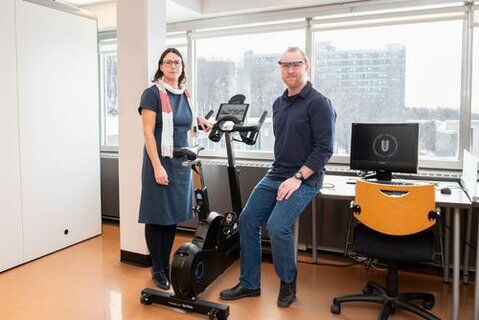
Pédaler et réfléchir en même temps
Combiner mouvement et apprentissage, une fausse bonne idée? Marie-Eve Mathieu et son étudiant François Dupont ont v...
liens.umontreal.ca
#SPORT | ⏳🏅 13 heures de décalage, 5 jours d’adaptation! Une étude menée à #umontreal révèle comment l’équipe canadienne de patinage de vitesse surmonte les effets du jetlag deux fois plus vite que prévu.
En savoir plus 👇

S’adapter à 13 heures de décalage: le défi de l’équipe canadienne de patinage de vitesse
Des chercheurs ont analysé la façon dont les membres de l’équipe canadienne de patinage de vitesse courte piste...
liens.umontreal.ca
#SANTÉ | 🧘♂️🧑🦳 Moins de stress, plus de résilience! Une étude menée à #umontreal révèle que le programme O’stress aide les aînés à mieux gérer l’anxiété et à réduire leur niveau de cortisol.
En savoir plus 👇

Stress et personnes âgées: une intervention novatrice qui le fait diminuer
Une étude a démontré que le programme O’stress a permis aux personnes âgées qui l’ont suivi de diminuer l...
liens.umontreal.ca
#TRAVAIL SOCIAL | 📖👶 «En route vers ta visite» : un outil pour les visites supervisées. Inspirée d’un ouvrage américain, cette trousse québécoise, développée par des expertes de #umontreal, soutient les enfants en placement.
En savoir plus 👇

«En route vers ta visite»: un album jeunesse pour accompagner les visites supervisées
Des expertes en intervention psychosociale ont conçu une trousse pour accompagner les enfants lors de visites supervi...
liens.umontreal.ca
#CRIMINOLOGIE | 📱👥 Les gangs de rue sur les médias sociaux : influence ou recrutement? Une étude de #umontreal, menée par Francesco Carlo Campisi, analyse leur présence en ligne et ses nuances.
En savoir plus 👇

Gangs de rue: une forme de marketing d’influence sur les médias sociaux?
À quoi ressemble l’utilisation des médias sociaux par les membres des gangs de rue canadiens? Servent-ils vraiment...
liens.umontreal.ca
#HISTOIRE | 📚🌍 Lyns-Virginie Belony : faire rayonner l’histoire d’Haïti
Nouvelle professeure adjointe à #umontreal, elle enseigne l’histoire des Caraïbes et d’Haïti pour déconstruire les clichés et offrir une perspective nuancée.
En savoir plus 👇

Lyns-Virginie Belony: enseigner l’histoire d’Haïti
Lyns-Virginie Belony rejoint les rangs du Département d’histoire de l'UdeM à titre de professeure adjointe.
liens.umontreal.ca
#PSYCHOÉDUCATION | 📺👦 Violence à l’écran : quel impact sur les jeunes? Une étude de #umontreal révèle que l’exposition précoce à des contenus violents peut favoriser des comportements antisociaux chez les garçons à l’adolescence.
En savoir plus 👇

Violence à l’écran: quelles conséquences sur les enfants qui y sont exposés?
Une étude montre que les garçons exposés à du contenu violent à l’écran pendant les années préscolaires é...
liens.umontreal.ca
#PHILOSOPHIE | 📚✨ Heidegger et Gadamer, une correspondance inédite. Jean Grondin, professeur à #umontreal, codirige la publication des lettres échangées entre ces deux figures majeures, révélant leurs idées et leur époque.
En savoir plus 👇
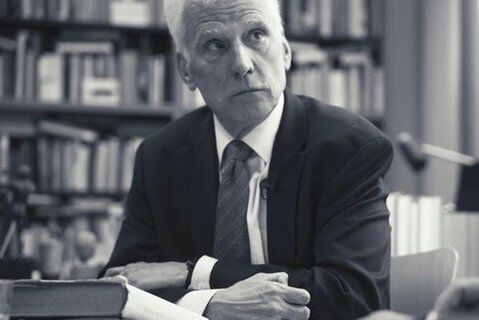
Parution de la correspondance inédite entre Heidegger et Gadamer
La publication de la correspondance entre Gadamer et Heidegger, codirigée par le professeur de philosophie Jean Grond...
liens.umontreal.ca
#RECHERCHE | 🧪✨ Vers des thérapies ciblées pour les cancers pédiatriques. Des chercheurs de #umontreal et de l’IRIC explorent de nouvelles molécules prometteuses pour traiter les leucémies à haut risque chez l’enfant.
En savoir plus 👇

De petites molécules pour traiter les cancers pédiatriques
Des scientifiques de l'UdeM et de l'IRIC ont mis au point une nouvelle plateforme de découverte de médicaments p...
liens.umontreal.ca
The university has a long list of illustrious graduates including: Roger Guillemin, co-recipient of the 1977 Nobel Prize in Physiology or Medicine; Louise Arbour, former chief prosecutor of the International Criminal Tribunals for the former Yugoslavia and Rwanda; Joanne Liu, international president of Doctors Without Borders; and the late Pierre Elliott Trudeau, one of Canada’s best-known prime ministers
The university has a long list of illustrious graduates including: Roger Guillemin, co-recipient of the 1977 Nobel Prize in Physiology or Medicine; Louise Arbour, former chief prosecutor of the International Criminal Tribunals for the former Yugoslavia and Rwanda; Joanne Liu, international president of Doctors Without Borders; and the late Pierre Elliott Trudeau, one of Canada’s best-known prime ministers
More than 1,000 UdeM students go abroad each year
University of Montréal has 10,000 international students, making it one of Canada’s most international universities
The Université de Montréal was founded 1n 1878, as a satellite campus of the Université Laval, with three faculties: theology, law and medicine.
Montrealer by its roots,
international by vocation
The University of Montréal has a truly international environment. With 10,000 international students, the university was previously named Canada’s third most international university, by a Times Higher Education ranking.
The university encourages student mobility. It has some 600 agreements that link the University of Montréal to higher education establishments located in 65 countries which provide a range of opportunities for its students to collaborate with their peers from all over the world and study abroad.
University of Montréal is also part of the G3. The G3 is a group of three major French language universities: Université de Genève, Université de Montréal, and Université libre de Bruxelles. G3 universities have created a common fund to help initiate new partnerships. The Strategic Project Development Program for Teaching and Research is one of the main vehicles for developing collaborations within the G3. The program is funded equally by all members of the group.
These universities have common interests and share similar goals in the areas of teaching, research, and service to society and the international community. The G3 aims to create innovative collaboration models in training, teaching, and research. It positions itself as a reference within the Francophonie.
Profile
- Proud Montrealer: Just like the city whose name it bears, the Université de Montréal is cosmopolitan, cultured, scientific and creative
- International leader: The teaching of its professors, the rigor of its researchers and the results of its students allow UdeM to remain in the forefront of the best universities in the world year after year
- Exemplary citizen: Committed, green and civic-minded, the entire Université de Montréal community takes sustainable actions for the city and for the inhabitants of the planet
One of the three foremost university research hubs in Canada
£597.2M
Research income
465
Research units
University of Montréal attracts over $500 million in research funding every year, making it one of the three foremost university research hubs in Canada.
Many renowned laboratories were born at University of Montréal, including: MILA, the world’s leading university research centre in deep learning; the Institute for Research in Immunology and Cancer (IRIC), one of the most productive in its domain; and the Centre de recherche en droit public (CRDP), the most comprehensive public-law research centre in Canada.
The University’s scientific research is overseen by Vice-Rectorate of Research, Discovery, Creation and Innovation. They ensure the development of research initiatives and collaborations in the University’s three salient research areas: the humanities and social sciences, natural sciences and mathematics, and health and biomedical sciences.
Become a Member
The World 100 Reputation Network is a group of the best universities in the world, delivering research that enhances reputation and offering leaders the chance to develop their own careers on a global stage. Members benefit from events and study tours, training, monthly media monitoring, and unique reputation research to provide institutional advantage.
Dalhousie University
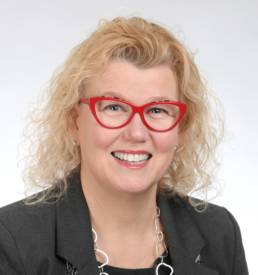
W100 Representative
Dr. Alice Aiken
Vice-President, Research & Innovation
Dr. Alice Aiken is the Vice-President Research & Innovation at Dalhousie University in Halifax, Canada. She is an active researcher focused on health systems transformation and evidence-informed policy-making. Dr. Aiken is currently the Vice-Chair of the Governing Council of the Canadian Institutes of Health Research (CIHR) and chairs the board of Research Nova Scotia. She is elected to the College of New Scholars, Artists and Scientists of the Royal Society of Canada.
She was formerly the Dean of the Faculty of Health at Dalhousie. She is a co-founder and the former Scientific Director of the Canadian Institute for Military and Veteran Health Research, a unique consortium of over 41 Canadian and 7 international universities dedicated to researching the health needs of military personnel, Veterans and their families.
She received her PhD and Master from Queen’s University, Canada, her Physical Therapy degree from Dalhousie University, and a BSc in Kinesiology from the University of Ottawa. She also proudly served in the Canadian Armed Forces for 14 years, first as a ship’s navigator in the Royal Canadian Navy, then as a physiotherapist.
She is currently the Honorary Captain(Navy) for Canadian Forces Health Services Atlantic, and a Dame of the Order of St George. For her commitment to the health and well-being of military personnel, Veterans, and their families, she has received the Canadian Minister of Veterans Affairs Commendation, the Queen’s Diamond Jubilee Medal, and the Chapel of the Four Chaplains Legion of Honor Bronze Medallion (USA).
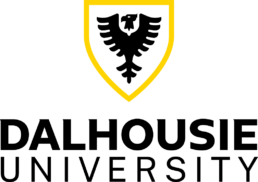
Dalhousie University is located in Halifax, Nova Scotia which is ranked one of the friendliest cities in the world. Founded in 1818, Dalhousie is one of Canada’s oldest universities, attracting more than 20,000 students from around the world. They make a lasting impact by blending transformative academic programs with pioneering research on Canada’s East Coast.
Dalhousie University is located in Mi’kma’ki, the ancestral and unceded territory of the Mi’kmaq.
The Latest from Dalhousie University
Educational institutions can be agents of change, turning mindless and potentially harmful scrolling into mindful and meaningful social media usage, writes Daniella Sieukaran from @DalhousieU. Read how: #highered #academia

Combat ‘zombie scrolling’ with engaged social media learning
Advice on using social media to transform Gen Z students from mindless scrollers to mindful scholars, with a guide...
www.timeshighereducation.com
Dalhousie University is seeking visionary scholars for the 2026 Canada Excellence Research Chairs (CERC) program – one of the country’s most prestigious and well-funded research opportunities.
Apply now: https://ow.ly/WuR650VPafc
Discover how recent Dal grad, Michelle Wang, grew from a quiet student into a McCall MacBain Scholarship winner, driven by her passion for community service and academic excellence:
(🏷️ @mmscholarships)
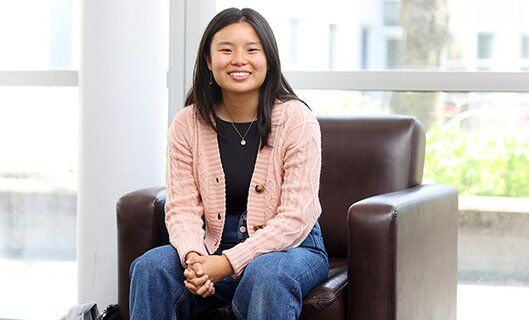
Michelle Wang's remarkable path: From local activism to national recognition
Discover how this recent Dal grad grew from a quiet student into a McCall MacBain Scholarship winner, driven by ...
ow.ly
If you close your eyes you can almost hear the skates cutting the ice and smell the popcorn!
This is the current view from the warm lobby overlooking the ice in the new Oulton-Stanish Centre!
Work on the ice pad starts in just a few days!
The first episode of From Research to Impact, from the Pierre Elliott Trudeau Foundation and The Walrus Lab, explores explore how sanctions, innovation, and resilience collide in Cuba’s healthcare system with @DalhousieU's @ProfessorHuish. 🎧 Listen: https://lnk.to/fromresearchtoimpact
#ICYMI - A new north strong and free? How should Canada reimagine itself in the age of Trump?
We asked six Dalhousie experts to answer that question — offering insights into how Canadians should navigate the choices ahead: https://ow.ly/ql4t50Vu45c
A new north strong and free? How should Canada reimagine itself in the age of Trump?
We asked six Dalhousie experts to answer that question — offering insights into how Canadians should navigate the choices ahead. https://ow.ly/ql4t50Vu45c
🌎 Apply by April 27! Visiting Fellowships will be awarded to highly qualified researchers who intend to conduct innovative, full-time, interdisciplinary & collaborative research
➡ https://ow.ly/TKGC50VjPGb
@DalhousieU @universitelaval @MemorialU @mastscot @CIM_Uvigo
Dalhousie University has over 19,000 students enrolled; Their student body represents over 115 different countries
In the early 19th century, George Ramsay, the ninth Earl of Dalhousie and Nova Scotia Lieutenant-Governor at the time, wanted to establish a Halifax college open to all, regardless of class or creed
In 1886, the university moved to the Forrest Building on today’s Carleton campus and spread gradually to occupy Studley Campus.
Thinking and
acting globally
Dalhousie’s global connections enhance the quality and impact of education and research at local, national, and international levels. The university’s international strategy is built on cooperation and partnerships to support learning and research that is interdisciplinary, cross-cultural, global in reach, and oriented toward solving problems that extend across national borders.
Key areas of internationalization include:
- Strengthening strategic international partnerships around the world
- Supporting student mobility for studying here or abroad via International Centres on the Halifax campuses and Agricultural campus
- Fostering innovative international research and development
- Recruiting students from around the world for more internationalized campuses
- Supporting and retaining international students with services including ESL
- Engaging alumni across the globe
- Promoting innovation and diversity in academic programs
The university has over 300 partnership agreements with universities from 67 countries. The Office of International Relations helps oversee the implementation of the international strategy and coordinates partnership agreements, visiting delegations, and visits abroad.
Vision and Values
Dalhousie inspires the diverse community to serve Nova Scotia, Canada, and the world through innovative and impactful teaching and research, world-class scholarship, a passion for learning, and a deep sense of social responsibility
- Academic freedom
- Commitment to excellence in teaching, research and service
- Equity, diversity, inclusion and accessibility
- Future-ready leaders
- Impactful community engagement
- Social responsibility and sustainability
- Wellness, accessibility, respect and support
Excellence in academics, leadership, research and innovation
$181m
Awarded annually in external research grants and awards
92%
of faculty have a PhD or doctorate
Dalhousie has a rich history of excellence in research and innovation. Their researchers are recognized through the institution, across the province, the country, and on the global stage for their many achievements.
What are Dalhousie’s research strengths? Their research efforts focus on five Signature Research Clusters and are informed by two cross-cutting themes, Big Data and Innovation & Entrepreneurship.
Dalhousie combines the prestige of a big-name university with a hands-on, collaborative education — all students have access to experiential learning opportunities in their programs and nearly 90% are taking advantage of it.
Dalhousie has received a five-star rating overall, and specifically in Teaching, Employability, Learning Environment, and Innovation, from QS Stars, one of the top global university rating systems.
Become a Member
The World 100 Reputation Network is a group of the best universities in the world, delivering research that enhances reputation and offering leaders the chance to develop their own careers on a global stage. Members benefit from events and study tours, training, monthly media monitoring, and unique reputation research to provide institutional advantage.
McMaster University
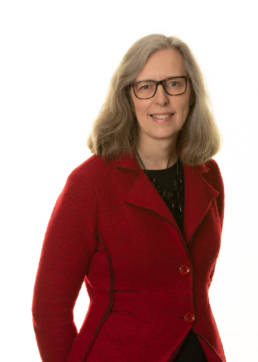
W100 Representative
Andrea Farquhar
Chief Executive, Internal and External Engagement
Andrea leads a team at McMaster that is responsible for strategic reputational management, marketing and media relations, digital media communications, government and community relations, and internal communications. Her early career was in media, where she was a reporter and newsreader
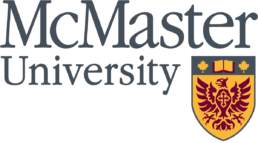
McMaster University is public research university located in Ontario, Canada. Founded in 1887 in Toronto through a bequest from the estate of Senator William McMaster, a member of the first senate after Confederation and founding president of the Canadian Imperial Bank of Commerce. The first three faculties were Arts, Science, and Divinity.
McMaster University’s purpose is the discovery, communication and preservation of knowledge. In their teaching, research and scholarship, they are committed to creativity, innovation and excellence.
The Latest from McMaster University
A bold vision for the future of McMaster University: President Susan Tighe outlines top priorities as she begins her term | @thespec
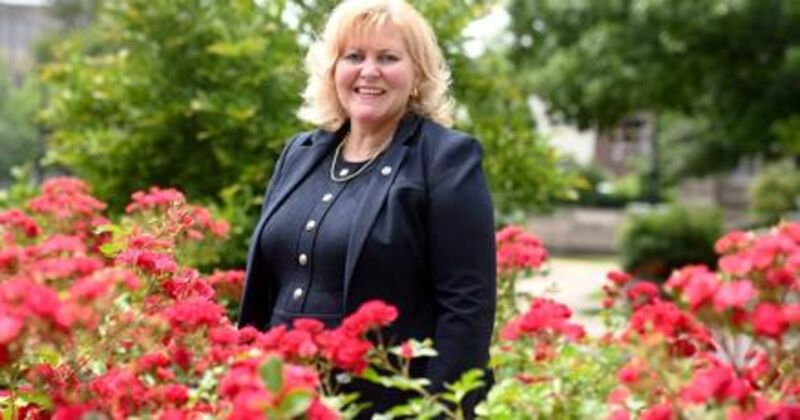
Susan Tighe steps into McMaster University’s top job with bold goals
Tighe, 54, is the second woman to hold the position
ow.ly
The School of Nursing at @McMasterU recently unveiled Indigenous artwork by local artist, Tom Wilson tehohåhake.
The painting, entitled “Seeds (version 2),” is meant to represent the resilience and resurgence of Indigenous culture.
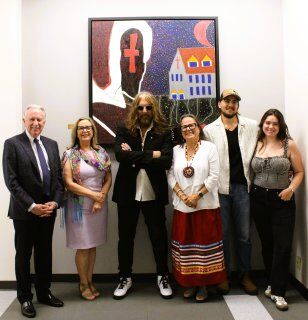
School of Nursing unveils Indigenous artwork by local artist - School of Nursing
School of Nursing unveils painting by local Indigenous artist to honour the 10th anniversary of the Truth and Reconciliation final report.
ow.ly
Canada’s public health depends on great research.
🔗 https://www.cihr-irsc.gc.ca/e/54204.html
Canadian university researchers like this team at @McMasterU are using AI technology to find new treatments and save lives.
Here’s to 25 years of progress and impact supported by @CIHR_IRSC!
#CIHR25…
A reminder to the McMaster community the university is closed Monday, June 30 to allow for an extended Canada Day weekend: https://dailynews.mcmaster.ca/articles/extended-canada-day-weekend-june-30-will-be-a-university-holiday/
Extreme heat can be dangerous, even deadly.
Erin Gallagher, assistant professor, shares what you need to know about staying cool this summer. 👇

Beat the heat: Expert advice on staying cool this summer - Faculty of Health Sciences
The long hot days of summer have settled in, and while not everyone has the luxury of cooling down by the po...
ow.ly
At a ceremony held in association with @McMasterU's Faculty of Health Sciences, six outstanding health leaders were inducted into the @CdnMedHallFame.
Among the laureates was Deborah Cook, @MacDeptMed professor.

McMaster celebrates Canadian Medical Hall of Fame laureates as ceremony host partner - Faculty of...
Six outstanding health leaders were inducted into the Canadian Medical Hall of Fame last week, at a ceremony held ...
ow.ly
It was a pleasure to host @AndreaHorwath for the opening of the Thermo Fisher Scientific Spectra Ultra in the Canadian Centre for Electron Microscopy (CCEM). Spectra Ultra helps solidify Canada’s leadership in microscopy. Thanks to the @cityofhamilton for its continued support.
We’re proud to share McMaster University has been ranked 14th in the world for global impact. This top-tier position is a recognition of our world-leading research, innovation & partnerships making the world more sustainable, healthier & equitable ➡️https://ow.ly/ZtIz50Wbz7P
McMaster researchers develop new material that could accelerate medical research and drug discovery by making it easier to 3D print soft, realistic tissue models | #MadeAtMac

McMaster startup creates 3D-printable ‘bioink’ that simulates lung tissue
The new material can be used to 3D print flexible, stable, three-dimensional structures at body temperature, which c...
ow.ly
Founded in 1887 in Toronto through a bequest from the estate of Senator William McMaster, a member of the first senate after Confederation and founding president of the Canadian Imperial Bank of Commerce
More than 195,000 alumni represent 162 countries as well as Canada
The McMaster Model, a problem-based, student-centred approach to learning, has been adopted worldwide
A research-intensive, student-centred university
McMaster recognises that a key element of its internationalisation strategy is forging global partnerships – research and educational alliances based on reciprocity, transfer of knowledge and resources, engagement with communities, and a commitment to effective collaboration.
They are involved with projects in over 130 countries, and within those countries have built over 1200 partnerships.
McMaster University is actively engaged every year in hundreds of international partnerships and collaborations, and these connections include; faculty exchanges, research collaborations, capacity building initiatives, joint supervision of doctoral students, student exchanges and mobility agreements.
Mission and vision
- McMaster's purpose is the discovery, communication and preservation of knowledge
- Committed to creativity, innovation and excellence in teaching, research and scholarship
- We value integrity, quality, inclusiveness and teamwork in everything we do
- We inspire critical thinking, personal growth and a passion for lifelong learning
- We serve the social, cultural and economic needs of our community and our society
17th in the THE Impact Rankings
70+
Research centres and institutes
$493,500m
Research intensity (per faculty member)
With more than 70 research centres and institutes, McMaster University has a high focus on collaborative research within many faculties, and with a particular focus on experimental sciences.
McMaster is collaborating across borders in the advancement of aerospace and earth science research, joining forces with the Operational Space Medicine program at the Canadian Space Agency and the National Aeronautics and Space Administration (NASA). They have also participated in the North American Carbon program, alongside NASA, the National Oceanic and Atmospheric Administration, the United States Department of Agriculture, and the United States Geological Survey, allowing graduate students to gain experience with field measurements and climate modeling works.
Become a Member
The World 100 Reputation Network is a group of the best universities in the world, delivering research that enhances reputation and offering leaders the chance to develop their own careers on a global stage. Members benefit from events and study tours, training, monthly media monitoring, and unique reputation research to provide institutional advantage.
University of Alberta
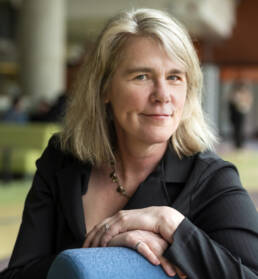
W100 Representative
Andrea SmithSENIOR ADVISOR (PORTFOLIO STRATEGY)
Andrea Smith is the Portfolio Strategy Senior Advisor for External Relations. Andrea uses her extensive leadership experience building businesses from strategic assessment through to realization to enrich External Relations’ vibrant and dynamic work environment. A civil engineer with an MBA, Andrea’s professional skills, coupled with her eclectic leadership experience in corporate, not-for-profit and public institutions (universities), provide important insight and direction to the External Relations portfolio.

Since its inception in 1908, the University of Alberta has had the vision to be one of the world’s great universities for the public good. The university is dedicated to the promise made by founding president Henry Marshall Tory that “knowledge shall not be the concern of scholars alone. The uplifting of the whole people shall be its final goal.” This promise endures as the university strives to improve the lives of people in Alberta, across Canada, and around the world.
The Latest from University of Alberta
The U of A has introduced its first Data Sovereignty Declaration and Caretaking Directives.
Led by Florence Glanfield, vice-provost of Indigenous programming and research, and the Supporting Indigenous Language Revitalization (SILR) team, the new guidelines ensure that research…
https://www.ualberta.ca/en/folio/2025/06/student-led-crew-brings-albertosaurus-to-screen.html
https://www.ualberta.ca/en/folio/2025/06/u-of-a-canadas-top-ai-university.html
https://www.ualberta.ca/en/folio/2025/05/decades-of-research-leads-to-kidney-transplant-breakthrough.html
https://www.ualberta.ca/en/folio/2025/06/u-of-a-ranked-in-global-top10-for-impact-on-sustainability.html
https://www.ualberta.ca/en/folio/2025/06/it-literally-saved-my-life-edmonton-protocol-celebrates-25-years.html
https://www.ualberta.ca/en/folio/2025/06/u-of-a-solidifies-top-100-position-in-latest-qs-global-rankings.html
From leading in artificial intelligence to kidney transplant breakthroughs, U of A researchers are making discoveries with lasting impact and global recognition.
Read this month’s most impactful stories from our community: https://www.ualberta.ca/en/folio/index.html
https://www.ualberta.ca/en/the-quad/2025/06/decades-long-quest-for-u-of-a-gallery-space-is-coming-to-fruition.html
Did you know Canadians discard nearly 500 million kilograms of clothing and textiles annually?
In a recent project with MCC Thrift, U of A researcher Rachel McQueen and graduate student Wing Sem Mak developed methods to tackle this growing waste problem by finding new ways to…
41,000 students at five separate campus locations
University of Alberta students, faculty, post-doctoral fellows, and staff have received many academic awards and distinctions over the history of the university, including 71 Rhodes Scholarships, 15 Banting Post-doctoral Fellowships, 41 3M National Teaching Fellowships, and three Governor General Awards for Literature
More than 300,000 alumni in 140 countries
The University of Alberta has won 78 National Athletics titles.
A place where good ideas have
a strong chance to become reality
The U of A has close to 400 teaching and research agreements with governments and partner institutions in nearly 50 countries. Key examples include Ludwig-Maximilians University of Munich, Indian Institute of Technology Bombay, Indian Institute of Science Bangalore, and Fudan University/Shanghai Medical College in China.
The Helmholtz-Alberta Initiative is an independent research partnership between the U of A and the Helmholtz Association of German Research Centres. The U of A’s largest international collaboration, which was recently renewed until 2020, merges scientific and technical expertise to develop innovative solutions for today’s challenges in energy and the environment, terrestrial ecosystem and resource informatics, and health. The initiative is expanding into infectious disease research.
Mission and vision
- To be a vibrant and supportive learning environment
- Discover, disseminate, and apply new knowledge through teaching and learning, research and creative activity, community involvement, and partnerships
- To give a national and international voice to innovation in our province, taking a lead role in placing Canada at the global forefront
- To inspire the human spirit through outstanding achievements in learning, discovery, and citizenship in a creative community, building one of the world’s great universities for the public good
Home to leading experts in both established and emerging fields
$12.3b
Annual impact on Alberta economy
$500+m
Annual research funding 2019
The University of Alberta is one of Canada’s top teaching and research universities, with an international reputation for excellence across the humanities, sciences, creative arts, business, engineering, and health sciences. In particular, the University of Alberta is internationally recognized as a world leader in diabetes research, energy and environment, virology, food security, nanotechnology, humanities computing, printmaking, artificial intelligence, family business research, carbohydrate chemistry, and circumpolar research.
Our expertise and strength attracts over $500 million annually from various research funders and partners including federal and provincial government, industry, foundations and other organizations.
Become a Member
The World 100 Reputation Network is a group of the best universities in the world, delivering research that enhances reputation and offering leaders the chance to develop their own careers on a global stage. Members benefit from events and study tours, training, monthly media monitoring, and unique reputation research to provide institutional advantage.
University of Toronto

W100 Representative
Christine SzustaczekVice-President, Communications
Christine Szustaczek, MCM, APR is the Vice-President, Communications at the University of Toronto, where she oversees an award-winning tri-campus team of writers, communications strategists, brand marketing professionals, digital and media relations specialists, videographers, and photographers since May 2023.
Prior to joining U of T, she was Vice-President of External Relations at Sheridan College Institute of Technology and Advanced Learning, where she led communications, marketing, alumni and advancement, government and community relations and special events.
She also ran her own communications consultancy for ten years, helping colleges, universities, hospitals, and social service agencies communicate their impact. She has held positions in communications and fundraising at various non-profits and post-secondary institutions. She is a board member at the Screen Industries Research and Training Centre in Toronto and the Alice and Murray Maitland Charitable Foundation.
She is passionate about higher education and the role it plays in transforming people’s lives, benefiting the economy, and advancing social well-being.
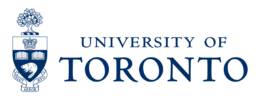
Founded in 1827, the University of Toronto has evolved into Canada’s leading institution of learning, discovery and knowledge creation. We are proud to be one of the world’s top research-intensive universities, driven to invent and innovate.
Our students have the opportunity to learn from and work with preeminent thought leaders through our multidisciplinary network of teaching and research faculty, alumni and partners.
The ideas, innovations and actions of more than 560,000 graduates continue to have a positive impact on the world.
The University of Toronto is one of the world’s great universities, distinguished by an extraordinary depth and breadth of excellence. U of T’s global outlook and cosmopolitan location in one of the world’s great cities provide students with a transformative educational experience, equipping them with the knowledge, skills and competencies needed to navigate our rapidly changing world.
The Latest from University of Toronto
#UofT took centre stage at the first-ever Toronto Tech Week. Some of the most renowned names in AI & beyond, from Nobel laureate Geoffrey Hinton to self-driving whiz Raquel Urtasun, were featured in panel discussions, fireside chats, startup demos & more from June 23–27.
With AI & robotics, #UofT students build 'self-driving' lab for less than $500 💻 http://uoft.me/bH4
The 2024–25 Annual Report from U of T’s Committee on the Environment, Climate Change & Sustainability is now live! 🌎 Over the past year, CECCS & the #UofT community advanced sustainability efforts on campus & beyond.
Explore the annual report: http://ceccsannualreport2024-2025.ca
📍 Step inside the Sam Ibrahim Building at @utsc — a new space for collaboration, innovation and connection. From labs and classrooms to the Sam Ibrahim Centre for Inclusive Excellence, take our @UofT Tiny Tour for a peek inside this vibrant hub.
#UofT's Kathi Wilson recognized by Canadian Association of Geographers 🍁 http://uoft.me/bGW
#UofT astronomers develop AI model to determine stars' ages 🌌 http://uoft.me/bGS
Today we welcome #UofT's 17th president, Melanie Woodin. An internationally recognized neuroscientist and double graduate of U of T, Woodin starts a new chapter on her first day in office. ➡️ http://president.utoronto.ca
#UofTArtSci undergrad passionate about Indigenous governance heads to Oxford this summer ⚖️ https://buff.ly/M09AqQs #UofTIRN #UofTIndigenous
Join us on July 29th at 11 AM (ET) for an Info Session about the Schmidt AI in Science Program, where we will answer all your questions, address any concerns, and share the experiences from our Cohort 2 Fellows.
Please register here: https://lnkd.in/g25vuMQr
The University of Toronto has three campuses: St. George, Mississauga (in the West) and Scarborough (in the East).
The University of Toronto has over 980 programs of study
The University of Toronto has over 606,876 alumni around the world as of Fall 2019
Equity. Diversity. Inclusion.
Where everyone belongs
The University of Toronto has a wide range of active agreements with institutions around the globe. They have Eight Axes which form the backbone of their International Strategic Plan and represent key dimensions for growth to position the University of Toronto for success on the international stage. These include:
- Recruitment
- Mobility
- International Student Experience
- Academic Partnerships
- Innovation
- Entrepreneurship
- Alumni and Fundraising
- Reputation and Brand
University of Toronto’s student body is a global microcosm, with over half of our students speaking two or more languages. Our students come from all over the world – over 160 countries – and our international students comprise over 15% of our student body. The university is committed to educating the best and brightest global citizens by providing a fulfilling and rigorous education with countless international opportunities for the entire student body. We are dedicated to transforming students into global leaders.
Mission and vision
- City building
- International Partnerships
- Transformative Education
- Dedicated to fostering an academic community in which the learning and scholarship of every member may flourish
- Vigilant protection for individual human rights
- A resolute commitment to the principles of equal opportunity, equity and justice
Consistently ranked among the top 10 public universities worldwide
980+
Programs of study
$1.38B
Research Funds Awarded by Sector
For nearly two centuries, University of Toronto (U of T) faculty, students, postdoctoral fellows, and staff have been extending the boundaries of knowledge and providing answers to some of the world’s most important questions. U of T is home to some of the world’s most talented thinkers, inventors, innovators, and educators, who are advancing knowledge and making critical discoveries for a healthier, more sustainable, prosperous, and secure future.
Consistently ranked among the top 10 public universities worldwide, U of T has remarkable strengths in disciplines that span the humanities, social sciences, sciences, and the professions. According to Times Higher Education (THE), U of T is one of only eight universities globally to place in the top 50 in all 11 subject areas ranked by THE — demonstrating our excellence in scholarship across a wide range of fields.
Curiosity-driven research is the catalyst that expands knowledge and holds the potential to alter fundamentally how we understand ourselves and the world around us. The exploration of fundamental knowledge has been at the root of much of our long-term social progress. Without the basic research conducted at universities, many of the most life-changing discoveries and innovations would never have occurred. At the University of Toronto, fundamental research in the sciences and engineering, social sciences, humanities, and health sciences has led to the discovery of insulin and stem cells, the development of the electron microscope, and one of the world’s first operational computers, the unearthing of “Peking Man,” the understanding that the medium is the message, and breakthrough developments in deep learning and neural networks. These advances were built upon decades, often centuries, of knowledge and discovery within and across disciplines.
Become a Member
The World 100 Reputation Network is a group of the best universities in the world, delivering research that enhances reputation and offering leaders the chance to develop their own careers on a global stage. Members benefit from events and study tours, training, monthly media monitoring, and unique reputation research to provide institutional advantage.



